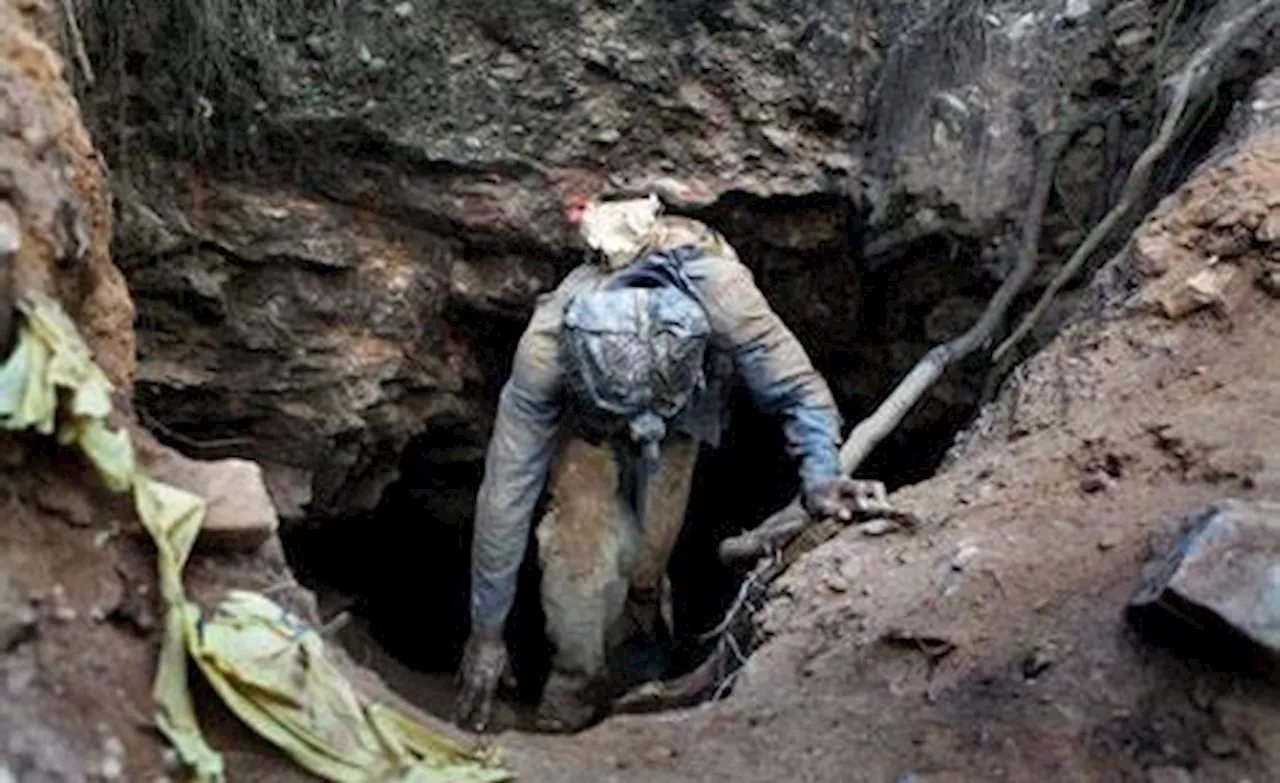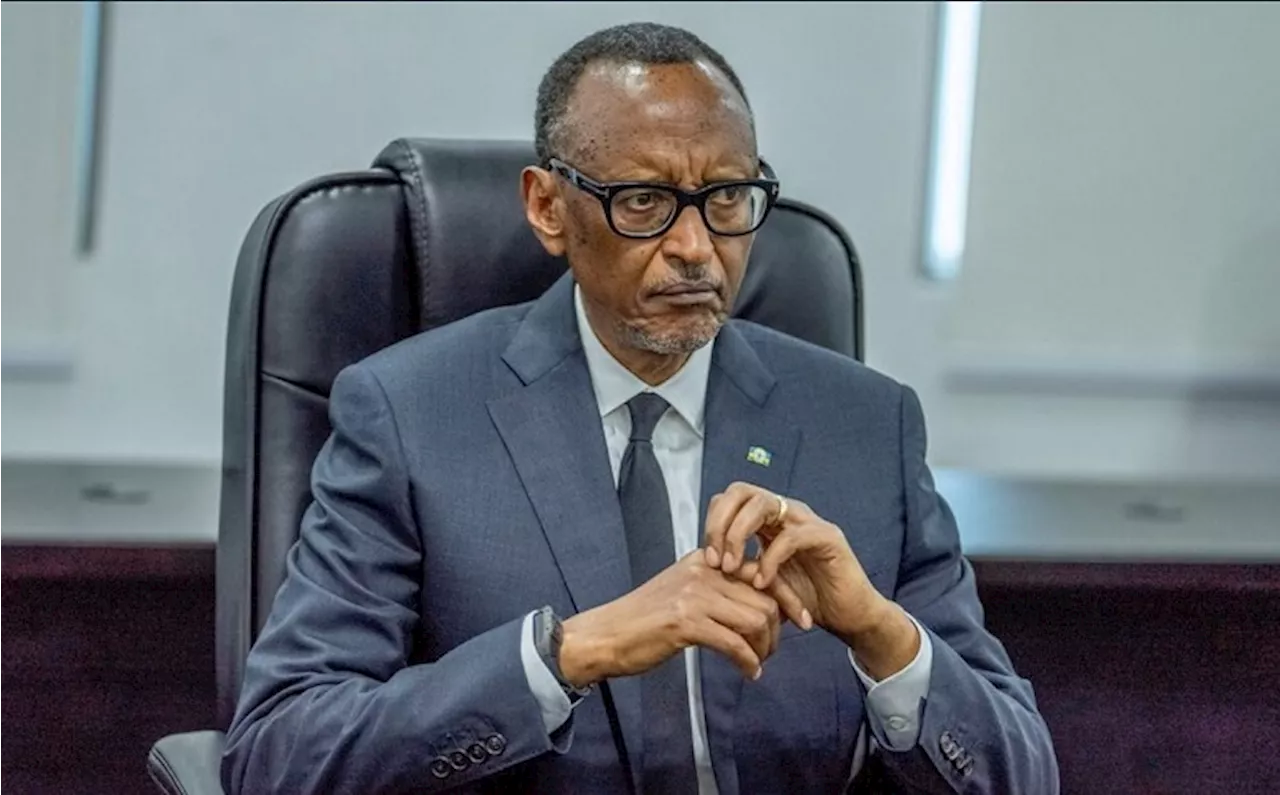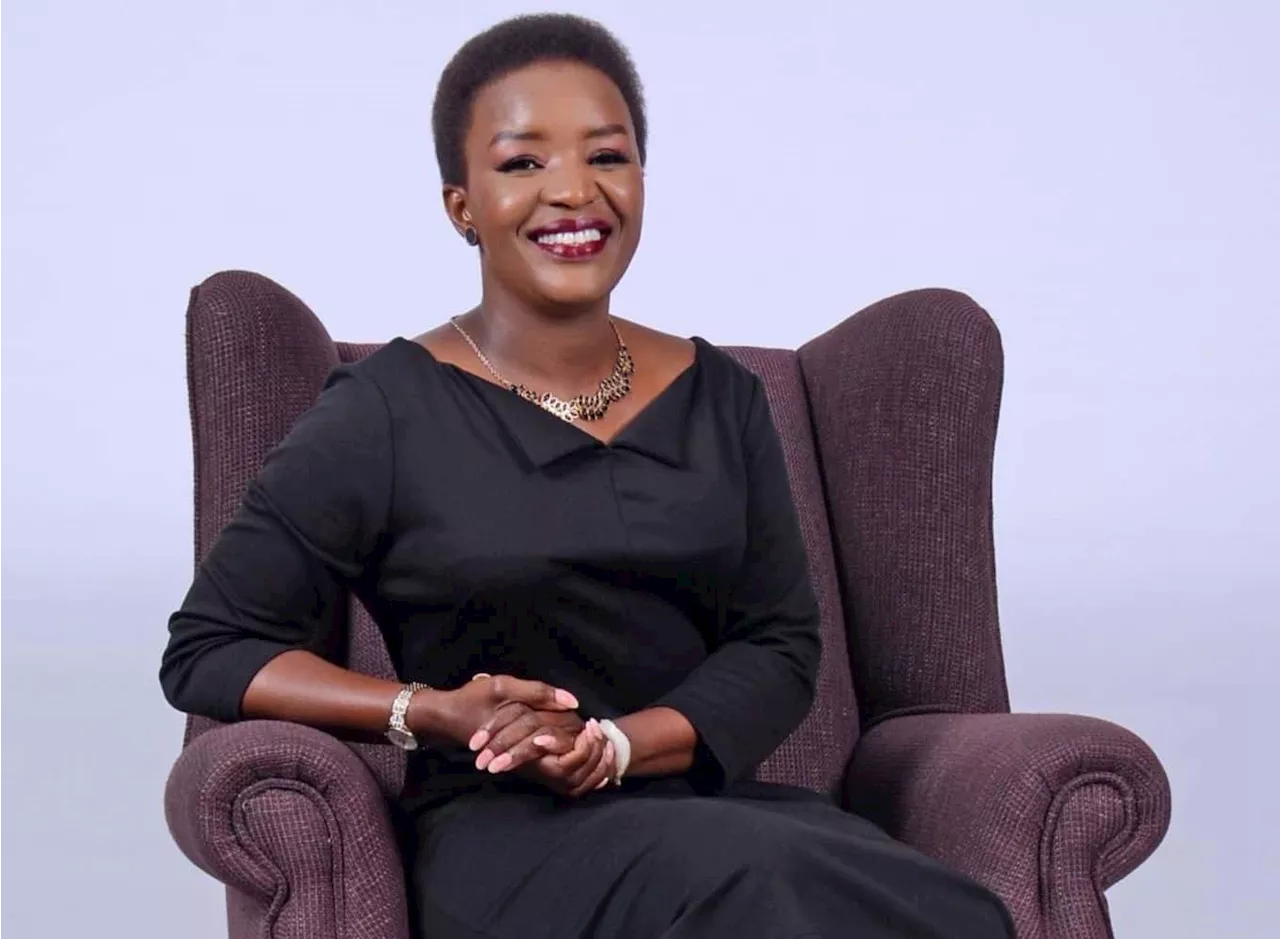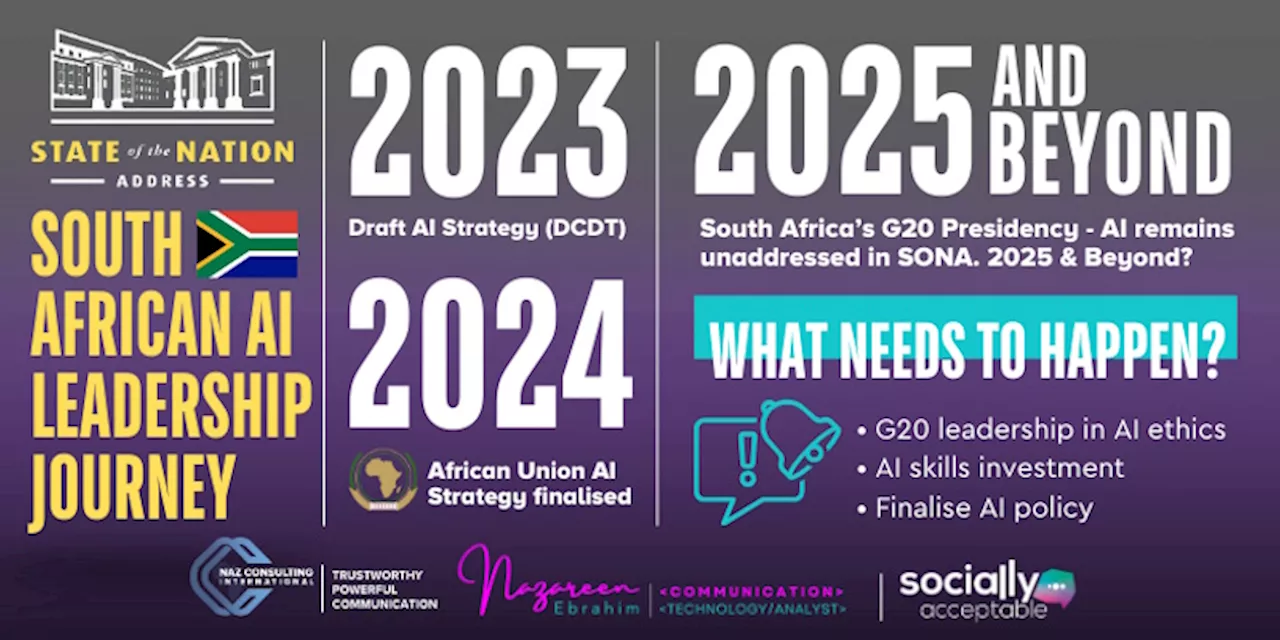As South Africa takes on the G20 presidency, the lack of a finalized national AI strategy is a critical concern. While Africa and other G20 nations have established comprehensive AI plans, South Africa lags behind. This news article emphasizes the urgency for South Africa to develop and implement its AI strategy to ensure it remains competitive in the global AI landscape.
As South Africa assumes the presidency of the G20 in 2025, the world is watching how it will shape critical global policies, including artificial intelligence (AI) governance. Across the G20 , countries like France, Canada, Germany, Japan, and India have already finalized comprehensive AI strategies, ensuring AI is embedded in economic growth, digital transformation, and workforce development.
On the African continent, Egypt, Mauritius, Rwanda, Benin, and Senegal have also made significant strides in AI governance by developing their own national AI strategies. Additionally, the African Union’s Continental Artificial Intelligence Strategy (2024) provides a framework for responsible AI development, aligning ethical AI adoption with Africa’s unique economic and societal challenges. However, despite leading the G20 and being home to some of Africa’s top AI research institutions, South Africa has not finalized its national AI strategy. The Department of Communications and Digital Technologies (DCDT) drafted an AI policy plan in 2023, but SONA 2025 failed to mention any commitment to its implementation. While AI was referenced in fraud detection, visa automation, and policing, it was not discussed as part of a structured AI policy framework. These were the only mentions in SONA 2025: Fraud detection and tax enforcement – AI-powered risk analysis helped SARS prevent R95 billion in fraudulent refunds and recover R20 billion in revenue. Visa processing and travel authorisations – AI is streamlining the Electronic Travel Authorisation system, reducing delays and corruption. Smart policing and crime prevention – AI is assisting in crime analytics, predictive policing, and forensic investigations to tackle high crime rates. These are useful applications, but without a governing AI policy, they do not support South Africa’s long-term AI growth, workforce readiness, or economic positioning. South Africa has made progress in AI development through the establishment of AI research hubs, which support several pillars of the draft AI strategy. However, without a finalized policy, these hubs lack the national funding, governance, and regulatory frameworks needed to maximize their impact. University of Johannesburg (UJ) AI Hub (2022): Focuses on manufacturing, fintech, energy, and the criminal justice system. Tshwane University of Technology (TUT) AI Hub (2023): Specialises in automotive, farming, food production, health, and telecommunications. Central University of Technology AI Hub (2024): Enhancing AI research and applications at a regional level. Defence Artificial Intelligence Research Unit (DAIRU) at the South African Military Academy (2024): Africa’s first military-focused AI hub, exploring AI’s role in defense and national security. These hubs support multiple pillars of the national AI policy — from AI innovation and start-up support to workforce transformation. But without policy alignment, they operate in silos, with no clear roadmap for expanding South Africa’s AI-driven economy. South Africa’s draft AI strategy outlines 12 key pillars for AI governance and innovation — none of which were referenced in SONA 2025. Government-as-a-platform approach – Enhancing AI integration in public services. AI sandboxes for testing – Creating safe AI experimentation spaces. Dedicated AI legislation and ethical governance – Regulating AI safety and fairness. AI in strategic sectors (health, energy, transport, etc) – AI deployment for infrastructure. By failing to mention these pillars, South Africa’s AI development remains reactive, rather than proactive. As G20 President, South Africa has an opportunity to: Ensure AI is part of trade and economic policies at the G20 level. Harness global AI ethics frameworks such as UNESCO’s AI Ethics Recommendations for transparency and fairness and the Vatican AI guidelines for ethical AI adoption. Without a national AI strategy, South Africa risks losing influence in these global AI conversations. Finalize and implement the national AI strategy — policy action, not just discussion. Invest in AI education and workforce readiness — AI adoption must support economic inclusion and job creation. Use the G20 presidency to shape global AI governance — Africa has an opportunity to lead, not follow in AI regulation. AI is reshaping economies, industries, and governance. South Africa must act now — or risk falling behind
AI Artificial Intelligence South Africa G20 Strategy Policy Technology Innovation Development
South Africa Latest News, South Africa Headlines
Similar News:You can also read news stories similar to this one that we have collected from other news sources.
 South Africa: Death of Miners in South Africa a Government FailureRights groups are criticizing South Africa's government for failing to prevent what they call a 'massacre' at the Buffelsfontein mine, after security officials cut off food, water, and other essential supplies to miners trapped underground and delayed a rescue operation.
South Africa: Death of Miners in South Africa a Government FailureRights groups are criticizing South Africa's government for failing to prevent what they call a 'massacre' at the Buffelsfontein mine, after security officials cut off food, water, and other essential supplies to miners trapped underground and delayed a rescue operation.
Read more »
 Rwanda's Kagame: Ready for Confrontation with South Africa if NecessaryRwandan President Paul Kagame has asserted that Rwanda is prepared for a confrontation with South Africa should the situation necessitate it. Kagame's statement follows the recent escalation of fighting in the Democratic Republic of Congo (DRC), where 13 South African soldiers were killed. Kagame claims South Africa's military activities in the DRC were not properly disclosed and that Ramaphosa requested logistical support while simultaneously acknowledging South Africa's peace efforts. He further criticizes South Africa's role as a peacemaker and mediator, warning of a forceful response if South Africa seeks confrontation.
Rwanda's Kagame: Ready for Confrontation with South Africa if NecessaryRwandan President Paul Kagame has asserted that Rwanda is prepared for a confrontation with South Africa should the situation necessitate it. Kagame's statement follows the recent escalation of fighting in the Democratic Republic of Congo (DRC), where 13 South African soldiers were killed. Kagame claims South Africa's military activities in the DRC were not properly disclosed and that Ramaphosa requested logistical support while simultaneously acknowledging South Africa's peace efforts. He further criticizes South Africa's role as a peacemaker and mediator, warning of a forceful response if South Africa seeks confrontation.
Read more »
 South Africa Optimistic About 2025: G20 Hosting and Continued ReformsSouth Africa anticipates a prosperous 2025, driven by the upcoming G20 summit and ongoing reforms. Business leaders highlight the potential for showcasing progress and attracting investment while emphasizing the importance of sustained reform efforts.
South Africa Optimistic About 2025: G20 Hosting and Continued ReformsSouth Africa anticipates a prosperous 2025, driven by the upcoming G20 summit and ongoing reforms. Business leaders highlight the potential for showcasing progress and attracting investment while emphasizing the importance of sustained reform efforts.
Read more »
 Amazon's Slow Start in South Africa: A Calculated Strategy for Long-Term Success?Despite a slow launch with limited product selection and uncompetitive prices, experts suggest Amazon's strategy in South Africa could be a long-term play. They point to Amazon's history of methodical market entry and sustained investment in new territories before achieving significant growth.
Amazon's Slow Start in South Africa: A Calculated Strategy for Long-Term Success?Despite a slow launch with limited product selection and uncompetitive prices, experts suggest Amazon's strategy in South Africa could be a long-term play. They point to Amazon's history of methodical market entry and sustained investment in new territories before achieving significant growth.
Read more »
South Africa's strategy at the World Economic Forum: A new narrativeSouth Africa prepares to showcase its economic progress and G20 Presidency at the World Economic Forum 2025 in Davos, with key insights from Ministers Parks Tau and Enoch Godongwana.
Read more »
IMF proposes debt ceiling strategy for South Africa to tackle unsustainable debtProjections from the National Treasury reveal that South Africa's government debt, currently standing at R5. 2 trillion, is expected to exceed R6. 05 trln, constituting 75. 5% of gross domestic product (GDP) by the 2025/26 financial year.
Read more »
